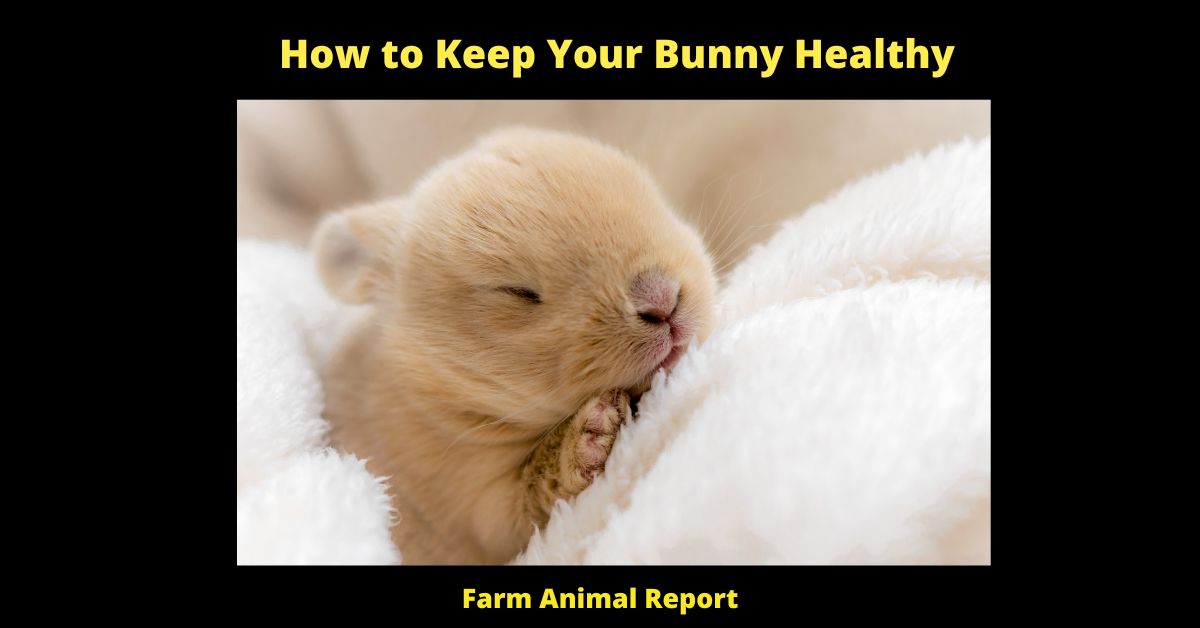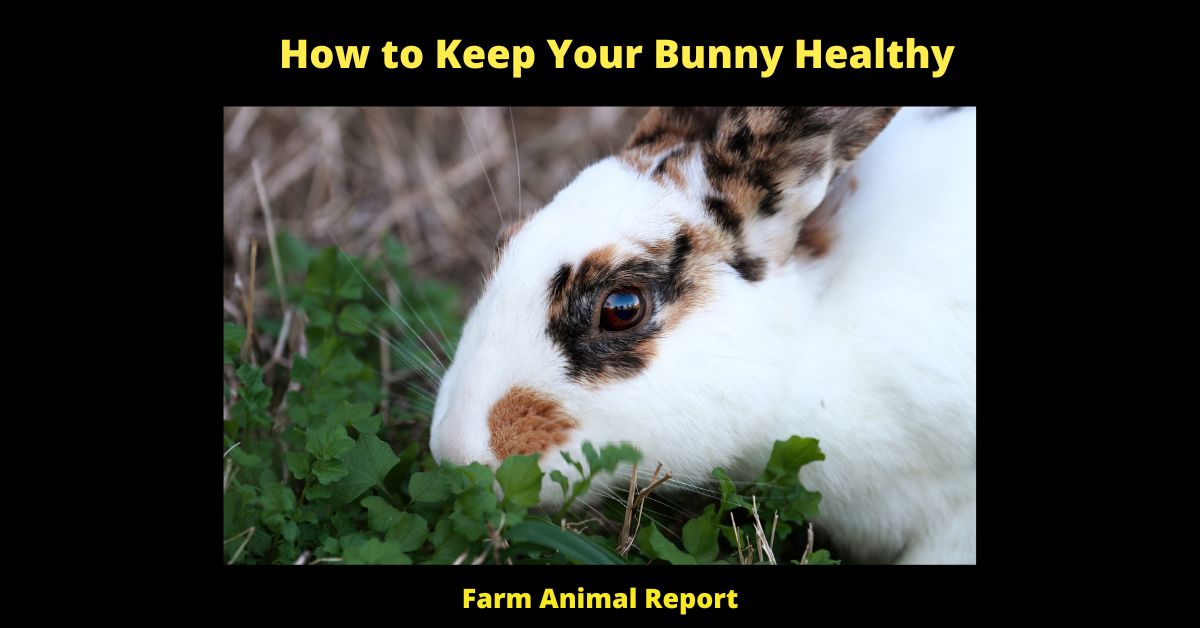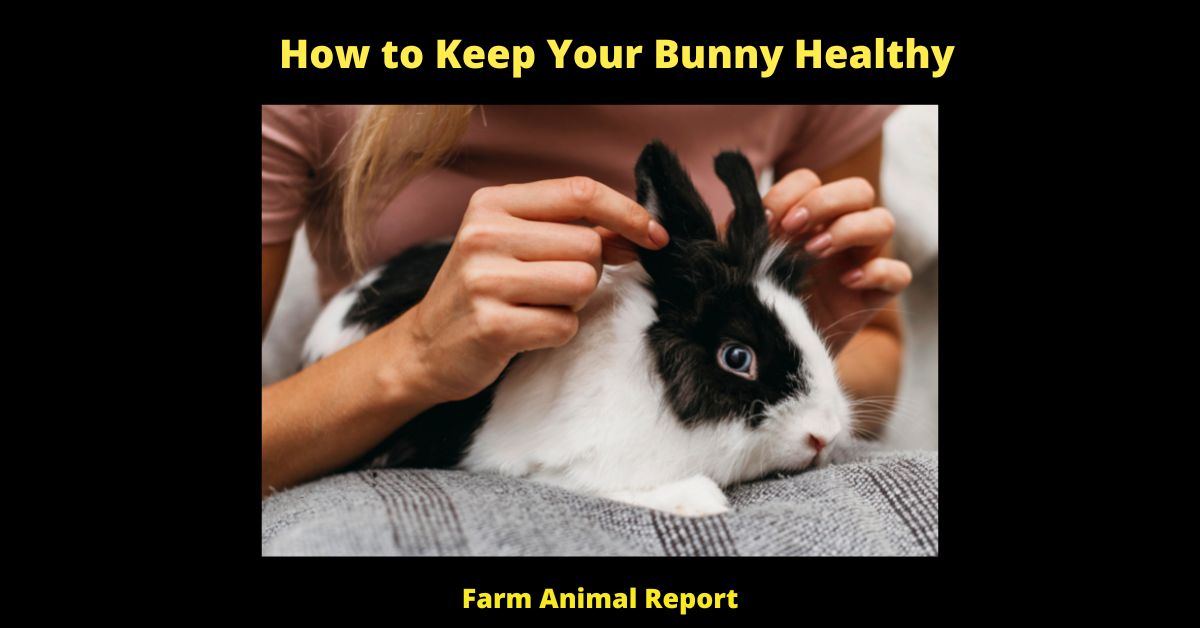How to Keep your Bunny Healthy – Bunnies are adorable creatures that can make great pets, but they require a lot of care in order to stay healthy. In this blog post, we will discuss the best ways to keep your bunny healthy and happy. We will cover everything from diet to exercise to dental care. So if you’re thinking about getting a bunny, or you already have one, be sure to read this blog post!
How to Keep a Bunny Healthy
As a responsible bunny owner, it’s important to know how to keep your bunny healthy. In this blog post, we’ll go over ear, feet, skin, and vent care for your bunny. By following these tips, you can help your bunny live a long and healthy life!
Rabbit Ears
Healthy bunny ears should be clean and free of wax buildup. You can clean your bunny’s ears with a cotton ball soaked in water or a gentle ear-cleaning solution. To clean your bunny’s ears, gently insert the cotton ball into the ear canal and wipe away any dirt or wax.
Be careful not to insert the cotton ball too far into the ear canal, as this could hurt your bunny. If you notice any redness, swelling or discharge in your bunny’s ears, contact your veterinarian right away.
You should check for bites or any brown scabs that might indicate ear mites.
Believe it or not, ear mites are a pretty common problem in rabbits. These tiny parasites live on the surfaces of the ears and feed on the wax and oil that is produced there. While they are not generally harmful to adult rabbits, they can cause irritation and discomfort. In addition, ear mites can cause a number of problems in young rabbits, including anemia and weight loss.
So how can you tell if your rabbit has ear mites? One of the most common signs is excessive scratching of the ears. You may also notice your rabbit shaking its head or rubbing its ears along the ground.

If you look closely, you may be able to see small white insects crawling around on the surface of the ear. If you suspect that your rabbit has ear mites, it is important to take it to a veterinarian for treatment. Left untreated, ear mites can cause serious health problems.
Rabbit Feet
Bunnies love to run and play, so it’s important to keep their feet healthy. Check your bunny’s feet regularly for any cuts, scrapes or signs of infection. If you notice any injuries on your bunny’s feet, contact your veterinarian right away. You can also prevent injuries by providing your bunny with a soft surface to play on, such as grass or sand. This will help keep their nails short and their feet healthy.

One of the most common problems that rabbits can develop is sore hocks. Also known as pododermatitis, this condition is caused by a bacterial or fungal infection of the skin on the bottom of the feet.
Sore hocks can be painful and debilitating, making it difficult for rabbits to move around. They may also develop sores, crusts, or lesions on their feet. If you suspect that your rabbit has sore hocks,. Left untreated, sore hocks can lead to serious health problems, including weight loss and permanent damage to the feet.
Rabbits Skin
Like humans, bunnies can get sunburned. If you notice any redness or sensitivity on your bunny’s skin, apply a gentle sunscreen lotion. You can also provide your bunny with shade when they are outside so they don’t get too much sun exposure. In addition to sunburn, bunnies can also get fleas and mites. These parasites can cause itching and discomfort for your bunny. If you notice any of these signs, contact your veterinarian right away so they can prescribe the appropriate treatment for your bunny.
Skin parasites are a common problem for rabbits. They can cause itching, hair loss, and skin irritation. The most common type of skin parasite is the fur mite. These tiny insects live in the rabbit’s fur and feed on their skin. Signs of fur mites include itching, bald spots, and red, crusty skin. If you suspect your rabbit has fur mites, take them to a veterinarian for treatment.

Another type of skin parasite is the ear mite. Ear mites live in the rabbit’s ear canal and feed on their blood. Signs of ear mites include excessive scratching of the ears, head shaking, and black discharge from the ears. If you suspect your rabbit has ear mites, take them to a veterinarian for treatment. There are several other types of skin parasites that can affect rabbits. If you notice any changes in your rabbit’s skin or behavior, take them to a veterinarian for evaluation.
Rabbits Vent
Bunnies have a special area on their rear end called the vent. This is where they excrete waste products like urine and feces. It’s important to keep this area clean to prevent infection. Check your bunny’s vent area daily for any sign of redness, swelling, or discharge.
There are a few different signs that may indicate your rabbit has a vent problem. One is if their droppings are soft or runny, or if they have difficulty passing stool. You may also see them scooting their bottom along the ground, or licking their backside more than usual. If your rabbit starts to show any of these signs, it’s important to take them to the vet right away. Vent problems can be painful and lead to serious health complications if they’re not treated promptly.
Rabbits Scent Glands
Rabbit Scent Glands are two tiny sacs located just inside the opening of the anus. They are connected to the anal glands, which produce a brown, oily substance. This substance is secreted when the rabbit gets excited or frightened, and it serves as a way for the rabbit to mark its territory.
The scent glands are also used to communicate with other rabbits, sending out signals that can convey a variety of messages. For example, a rabbit will often rub its scent glands on objects in its environment to let other rabbits know that it has claimed that object as its own.
In addition, the scent from the glands can also be used to convey information about a rabbit’s health and well-being. A healthy rabbit will have strong-smelling scent glands, while an unhealthy rabbit will have weak-smelling glands. As a result, the scent glands play an important role in Rabbit communication.

Final Thoughts – How to Keep a Bunny Healthy
- Monthly Look Over
- Good Diet
- Good Cage
in summary, there are a few things you should do to keep your bunny healthy. You should check them monthly for any signs of illness or injury and make sure they have a good diet, plenty of exercises, and a comfortable environment to live in. Additionally, you should also be aware of skin parasites and scent glands and take action if any issues arise. Taking these steps will help ensure your bunny remains happy and healthy.





